The breathtakingly beautiful city of Venice, which has a great variety of Venice property for sale, lies in the Veneto region of Italy, and is bordered by the superb mountain ranges of the Dolomites and Alps which offer a wide range of hiking and skiing. To the south lay the serene waters of the Adriatic, famous for its beaches and water pursuits. There is also much Venice property for sale to be found throughout the area.
Venice itself spans 117 islands and the world famous canals are still the most popular method of getting around the city, whether by romantic gondolas or the many water taxis and buses (vaporetti). The canals provide a romantic setting for the numerous bars and restaurants that line the streets of this cosmopolitan city, selling, as you would expect, fare from all around the world, as well as the local specialities of pasta and seafood. Venice property for sale offers the best of both worlds; modern facilities and connections with the rest of Europe and a breathtakingly setting.
The countryside surrounding the City is often a great surprise to the few tourists that venture away from the fabulous facilities, shops and historic buildings in the town, where there is much Venice property for sale. Often tranquil and retaining its old-world charm in the many ancient and enchanting fortified towns that are characteristic of the region, it offers much to locals and tourists alike, including hiking, fishing, skiing, or simply an opportunity to enjoy the unspoilt landscapes.
View Properties
There is a great range of Venice property for sale such as fabulous town houses steeped in history, including a great number of ‘ville venete’, the traditional 15th-19th century villas – ideal Venice property for sale for those with a larger budget. There are good links to the rest of Europe by road, rail and air, and the region boasts three airports; Venice Marco Polo, Venice-Treviso and Verona connecting with all major London and UK airports. Venice property for sale offers a unique opportunity to invest in a buoyant market, with opportunities for excellent rental income from the numerous tourists that flock to the city.
The six districts of Venice each offer unique Venice property for sale. These districts are (Sestieri): Cannaregio, San Polo, Dorsoduro (including Giudecca), Santa Croce, San Marco (including San Giorgio Maggiore) and Castello (including San Pietro di Castello and Sant Elena).
Nearby Venice, property for sale can be found all over the beautiful region of Veneto, including in ‘Fair Verona’, immortalised in Shakespeare’s Romeo and Juliet, and Padua (Padova), 30 kilometres from Venice, which attracts pilgrims to the majestic Basilica houses and art lovers alike, and is located near to the thermal resorts of the Colle Euganei hills.
When buying Venice property for sale, the initial step is the proposal of purchase (proposta), where a 1% deposit is customary to enter a binding contract if the offer is accepted. Next is the preliminare, the preliminary purchase contract, which involves a 10-20% deposit of the contract price, and is used to prepare the paperwork needed for the final purchase contract (rogito natarile). The house must then be registered, which involves a 3% imposta di registro.
Venice is a seller’s market due to the high demand for Venice property for sale and the limited numbers of properties that are available. As such, prices remain high and represent a very good investment – there has been a typical rise of around 11% per annum in recent years. Venice will always be a hotspot for property buyers who wish to enjoy the delights of this romantic city, which means finding a buyer should you decide to put your Venice property up for sale will not be hard.
As a buyer you will find only a very few Venice properties for sale under 500,000 EUR that do not require major renovation. Up to around 800,000 EUR you will need to do some renovation if you are looking in the most popular and expensive areas, but outside these you should find many Venice properties for sale that are ready to move into.
When you have bought your Venice property for sale, there are numerous attractions for you or your tenants to enjoy. The ten-day Carnival in February is highly popular, meaning hotel space is at a premium and rental prices rise. There are also the many cultural exhibits such as the Accademia art museum, the Jewish Ghetto, the campi (the open spaces or piazzas), the Basilica (with its famous altar screen inlaid with precious stones) and, of course, the historic canals and bridges that are the very essence of the popular understanding of Venice. Buying a Venice property for sale allows you the time to soak up what Venice has to offer, including the quiet backstreet shops, the little known restaurants that offer high quality local cuisine and to get to know the locals.
The up and coming area of Venice is Giudecca, the long island to the south of Venice itself which is just a two minute boat ride away. It is a mix of old and new, and offers much fine Venice property for sale, both old and new build.
1. Making the Offer to Purchase (Offerta)
Once you have found the property you wish to purchase you will start the process by making a formal offer to the vendor, the estate agent will act on your behalf and put forward the offer, a deposit will be made available, generally around (10,000 - 20,000 EUR). Once the vendor has accepted the offer it will be formalised in writing to the vendor in both English and Italian. If this is accepted the deposit (Caparra Confirmatoria) will be paid to the vendor. This will form a legally binding contract. Neither party may withdraw at this point, the sale can be forced by either party or a claim for damages can be made. If the purchaser withdraws their deposit will be lost, if the vendor withdraws the purchaser can claim twice the deposit in compensation.
2. Signing the Preliminary Contract (Compromesso or Contratto preliminare)
The next step will take place between 1 and 3 months after the offer has been accepted, this is a formal agreement between the vendor and purchaser to sell and buy the property, this agreement is the Preliminary Contract and will contain the conditions and terms of the sale. It is important at this stage that you have a full understanding of all the details contained in the contract. We would strongly recommend that you appoint a Notary who is fluent in English. This document will include the purchase price, a detailed description of the property including completion date and will cover any obligations placed upon the buyer and the vendor. All information relating to the property including any planning permissions for the property and the cadastral details (a public record, survey, or map of the value, extent, and ownership of land as a basis of taxation). Once the Preliminary Contract (Contratto preliminare) has been signed a further deposit (Caparra Confirmatoria) will be paid, this will generally be 10% - 20% of the purchase price. There will also be an estate agents Commission Fee (Provvigione) which will need to be paid at this point.
3. Signing the Final Deed of Sale (Rogito or Atto Notarile)
The purchaser must have a bank account in order to make the purchase on completion. The signing of the final deed of sale which will authorise the transfer of the property must be overseen by a Notary (Notaio). The buyer will select and hire the Notary, but they are members of an independent body of public/professionals who will draft the purchase deed, they will oversee the passing of the title legally from the vendor to the purchaser. The Notary will also verify the legality of the documentation and registration with the Conservatoria dei Registri Immobiliari and the Local Land Register.
4. Formalities to be observed after Completion
Foreign buyers should obtain a certified copy of the Purchase Deed (Rogito), which the Notary will have lodged with the authorities. Generally this will be available to collect around 2 – 3 weeks after completion. The Notary will also give you a form to complete for the the local authority (Questura) who will have been given formal notice of the purchase. Your Notary will help you to complete this form. You will need to contact the utilities companies to set up new contracts (power, water, telephone, gas etc.). If the property is a flat, the condominium manager (Amministratore del condominio) should be informed of change of ownership of the property.
IMPORTANT - Disclaimer : All information provided is believed to be current and provided free of charge. No liability can be accepted for the reliability of the information and statements made as this is obtained from 3rd parties. We always recommend you take legal advice from a fully qualified Lawyer or Notary before buying a property overseas.
Taxation
Various taxes must be paid on purchases. Registration tax / stamp duty (Imposta di Registro) is calculated on the government’s valuation of the property (Valore catastale). This will vary according to whether the property is being purchased as a holiday home, or as your primary residence. For a holiday home stamp duty will be 10% of the valuation. If you are intending to use the property as your primary residence and apply for residency (Prima casa), providing this is done within 18 months of the property transfer then stamp duty will be reduced to 3% for an existing property and 4% for a new build. This will be paid to the Notary on completion of the purchase.
Land registration, mortgage and cadastral taxes also need to be paid to the Notary on completion. These are one-off payments and are around €168 each.
Once the property has been purchased further taxes must be paid. There is a local council tax ICI/IMU property tax (Imposta Comunale sugli Immobili) of 0.4% to 0.9% of the property’s cadastral value. The rate for this is calculated annually by the council and paid bi-annually in June and December. This rate will be reduced if the property is the primary residence (Prima Casa).
If you are not resident in Italy you will have to declare any income gained from activities in Italy to the Italian Tax authorities. This income will also have to be declared in your country of residence, you will need a double taxation agreement to mitigate against paying twice. This declaration will apply to any income you might obtain from letting a property in Italy. Some expenses incurred on the property may be off-set against the income you derive from letting out the property. This can include management expenses, local taxes, repairs etc.
There is one tax which applies only to holiday homes, there will be a 20% Capital Gain on the difference between the buying price and the selling price if the property is sold prior to 5 years ownership.
View Properties
Meet Carlo Prandini our agent in Venice, Italy.
Current State Of The Market
Q. What is the current state of the local market?
A. Still interesting thanks to foreign buyers. Venice is a charming historical city and the market is influenced by the fact that there is no new building allowed.
Q. How have sales performed since 2008
A. The real estate market for Venice property for sale has completely changed, in 2008 a broker was looking for sellers today we are looking for buyers. I remember in 2008 when I arrived in Venice you had to queue to visit a flat and now we have to look for buyers.
Q. Which types of property are not selling?
A. In Venice, properties that cost from €500.000 to €1.500.000.
Q. Is Venice a buyer's or seller's market?
A. It is a buyers market.
Today you can find many properties on the Grand Canal, in 2008 when I came to Venice there was only one property available on the Grand Canal.
Q. Which type of property is most popular?
A. When the asking price is less than €300.000 and when it is more than €2.000.000. What it needs for the property to be popular is the view, outdoor space and a lift. Another plus is a good refurbishment.
Who Is Buying?
Q. What nationalities are driving the Venice buyers market?
A. About 20% of our buyers are Italian (not venetian), around 80% are foreign, half French and half British. No Russians, or Chinese.
Q. Are specific areas of Venice popular with particular nationalities?
A. Italians prefer small properties (price less than €300.000). Foreign buyers prefer charming venetian properties. An Australian lady spent €1.200.000 for a flat because is located close to the Biennale Art.
Q. Are clients buying as a single purchase or for a portfolio?
A. The majority are single purchases. A small percentage are looking to buy a second or a third property as an investment for touristic rentals.
Walkthrough Of The Different Areas
Q. Could you describe the different locations?
A. Venice is a unique city, this seems an obvious thing to say, but it is important to remember. The quality of life is very high for many reasons. There is no other place in the world in which you can walk and reach “everything” without a car. People walk in Venice and meet other people and talk and smile and say “hello”, the social life is very important and easy in this fabulous city. Venice imposes its time and its space. The city reminds residents that humans are not obliged to “run” and buildings are “kept as they were”. Fortunately the city is very safe, we suggest walking around, lose the way and discover Venice. There are many secret gardens, unknown churches, forgotten buildings. There is not sufficient time in one life to see everything it is possible to see. If you are interested in art, paintings, architecture, history and music this is the place to live. In each “campo”(square) it is possible to discover a story, in each restaurant there is a traditional recipe and in each property there is a soul. The real estate market in Venice is really a good investment because there are no new properties being built. The city has an intimate relationship with the buyer. In a sentence it is true that Venice is love at the first sight. With reference to the six districts into which the city is divided I will summarise my impressions as a resident:- San Marco is the luxury area and the place where clients buy their first flat in Venice.
- Dorsoduro is loved by the Americans and the French.
- Castello is more British and Cannaregio is very venetian.
- S. Croce is a “new area” because is very close to the station and piazzale roma.
- San Polo is in 3 words “location, location, location”.
- Giudecca is an island between islands but in some cases the view is stunning.
- Lido is a summer place.
Q. What types of property are available?
A. We have a variety of Venice property for sale, pied à terres, flats, apartments, noble floors, houses and palazzos. We also have the mandate for castles, hotels and islands.
The noble floor depends on the building, often it is the first floor, sometimes there are two noble floors, the first and the second. A real noble floor should have 3 big windows faced onto a campo or a canal.
Q. Are there any new developments or renovations?
A. The best sellers are properties with a central location, good refurbishment and the correct asking price respecting the venetian atmosphere.
Help With The Buying Process
Q. What are the local annual Venice property taxes?
A. I recommend a fiscal expert because is complicated to buy in Venice with regard to taxes.
On a second house we pay 7/1000 of the value that is not based on the asking price but is the “catasto” (land registry) value.
Q. Should buyers get a full structural survey?
A. If a seller proposes to sell a building with structural problems I would generally say that I do not want to sell the property, as in Venice it could be very complicated to take on a structural refurbishment.
Q. Should buyers instruct a solicitor from their country?
A. I would usually give all the information to the buyer and if there is something complicated I ask my lawyer and transfer the report to our client.
Q. Do you have any inheritance tax advice?
A. Yes. In Italy if the buyer is not young it is better if he or she buys the use of the flat until his/her death, the owner of the walls should be a son or a grandson.
In any case up to €1.000.000 there are no taxes on inheritance.
Q. Do you translate documents?
A. Yes in English and French.
Q. Can you recommend an insurance agent?
A. Only if the client asks me, I use Zurich.
Maintenance and Renovations
Q. Do you have a maintenance team available?
A. Yes, but only if the client asks me.
Q. Do you recommend any local builders?
A. Yes, but again, only if the client asks me.
Venice is a little village with 58.000 residents bringing in builders could create problems. Italian law says the Estate Agent has to have insurance to cover mistakes. The seller, if he is a builder, has to guarantee the quality of the work and assist the buyer. If the seller is a private individual, only the Notary could guarantee in the final act that everything is ok (not from the structural point of view).
Q. Are there any local grants available?
A. There were in the past, for residents, but today there are none.
Visiting To View Properties
Q. Do you recommend an airport transfer company?
A. The only one available by water is Alilaguna but is possible to choose a water taxi (very expensive) or to take a bus to Piazzale Roma (and then a vaporetto).
Q. Do you meet clients at your office or pick them up?
A. I am used to picking up clients at their hotel, Venice can be a beautiful labyrinth. If a client proposes to meet in some place of course that is fine for me.
Local Area Information
Q. What are your favourite weather months?
A. The best are April until October. The worst is November.
Q. Do clients need to speak the local language?
A. It is not necessary but Italians do not speak English very well….
Q. What are the crime statistics for the area?
A. Venice is very safe.
Q. What schools are there locally?
A. In Venice we have good schools from elementary up to university.
Q. What local places of worship are there?
A. We have a Synagogue in Cannaregio, a Greek church in Castello and a Baptist church in Dorsoduro and a couple of mosques.
Q. What local healthcare is provided?
A. The hospitals are situated in the city.
Q. What days are national holidays?
A. Venice National Holiday Dates 2014
January 01 New Year's Day
January 06 Epiphany
April 21 Easter Monday
April 25 St Mark’s Day
May 01 Labour Day
June 02 Republic Day
August 15 Assumption
October 25 All Saints' Day
December 08 Immaculate Conception
December 25 Christmas Day
December 26 St Stephen's Day
Q. Are there any major festivals or events?
A. Carnival
The Biennale Opening (first weekend of June)
Lido Movie Festival (end of August – first week of September)
Vogalonga (8th June 2014)
Regata storica (7th September 2014)
Q. What are your favourite restaurants?
A. Europa & Regina Hotel in San Marco and
Do Forni also in San Marco.
Q. What nightclubs do you recommend?
A. There are no nightclubs in Venice.
Q. Which gym would you recommend?
A. Yes, Delfino in Dorsoduro.
Q. What leisure activities are popular?
A. Boat rental is fun. Venice is of course perfect for boat lovers. There is a golf club at the Lido and a private airport. In the country there are vineyards and Spas. Skiing is available in the Dolomites.
Q. Where are the best places to shop?
A. All the top luxury brands are located in Venice San Marco (close to St. Mark square). Murano island specialises in glass. Go to S. Marco and Dorsoduro for art.
Purchasing
Q. Are there are any new laws affecting property in Venice?
A. Yes to protect listed building. In any case in Venice it is not possible to build or enlarge properties, the skyline was, is and always will be the same.
Q. Are there any new transport links being constructed?
A. We have a new bridge on the Grand Canal called Calatrava and the Ponte della Libertà (the one that links Venice to the country) has been enlarge and improved.
Rental Market
Q. Are there any new laws restricting rentals in Venice?
A. There are three possibilities: for residents (4 plus 4 years), for students (annual contract) and touristic rentals (3 days up to 1 or 2 weeks. Touristic rentals give the best income).
For touristic rentals there are restrictions:
1. The flat has to be 45 sq m and the bedroom 14 sq m.
2. The flat needs a new blackwater (sewage) pipeline and the document of agibilità.
Q. Do you market rental property?
A. Yes.
Q. What is the state of the local rental market?
A. 10% resident
25% students
65% touristic rentals
Q. Are rentals mainly for short term, long term or students?
A. Short term.
View Properties
IMPORTANT - Disclaimer :
All information provided is believed to be current and provided free of charge. No liability can be accepted for the reliability of the information and statements made as this is obtained from 3rd parties. We always recommend you take legal advice from a fully qualified Lawyer or Notary before buying a property overseas.
Close
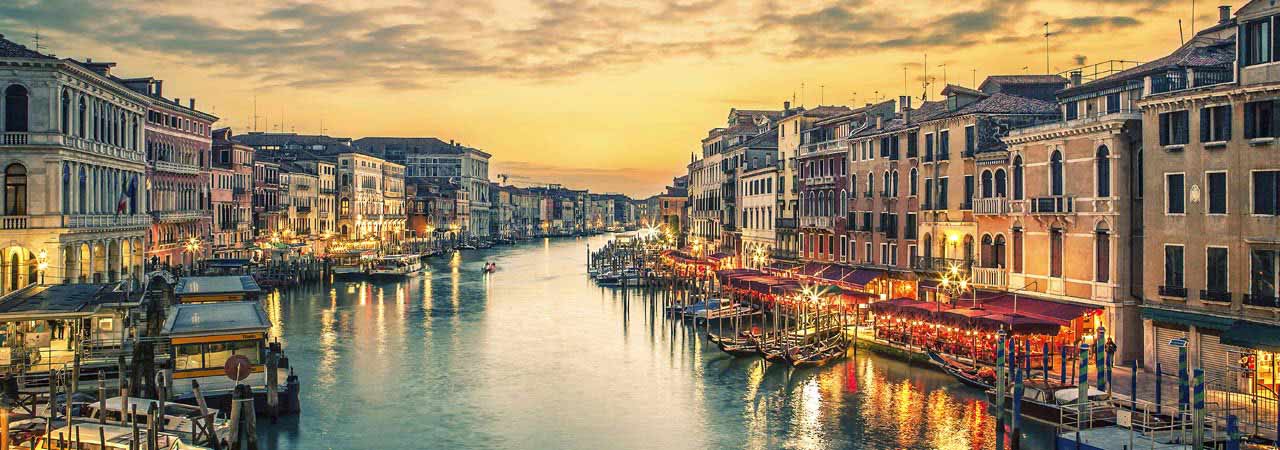



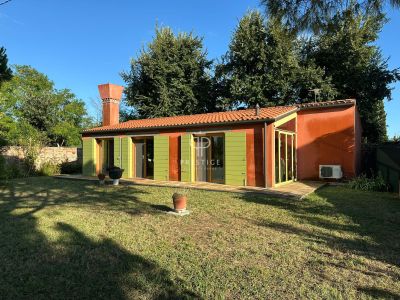
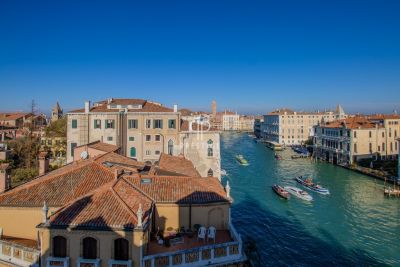
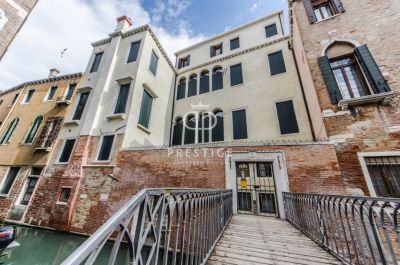
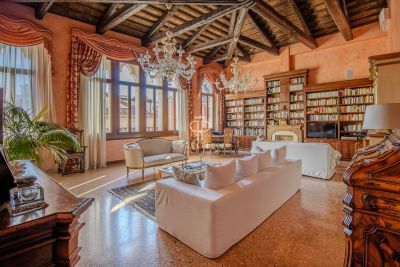
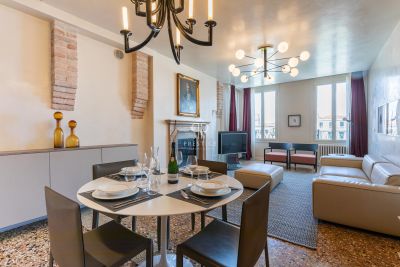
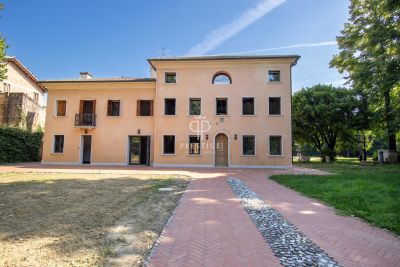
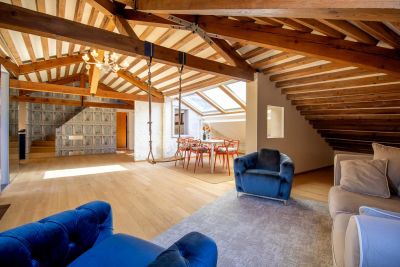
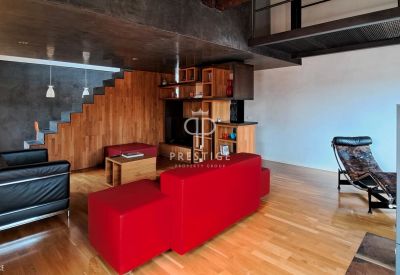
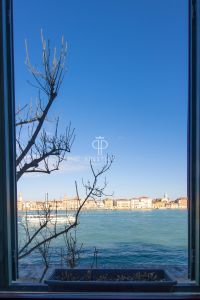


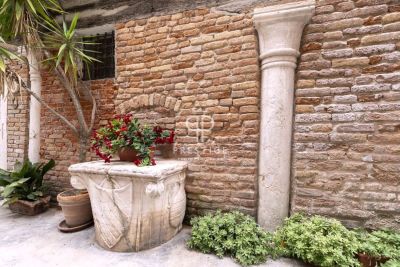

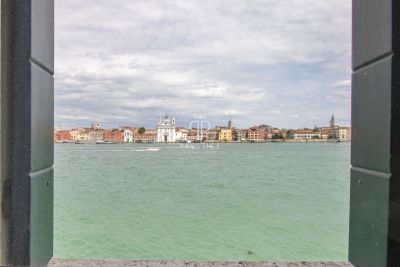
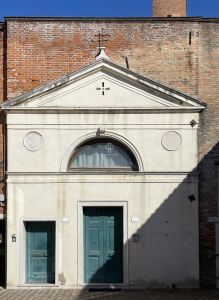
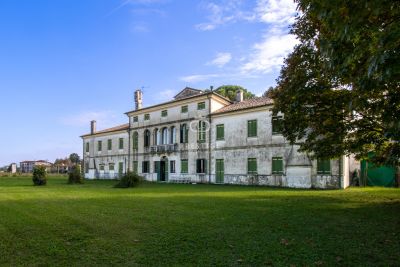
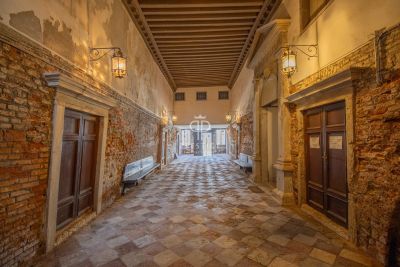




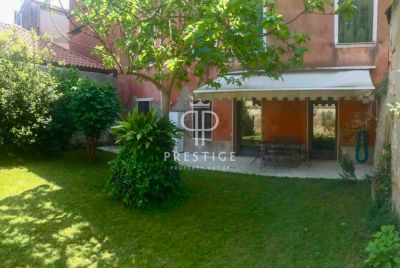
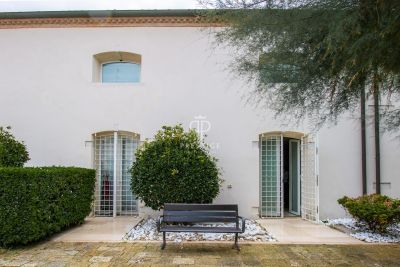
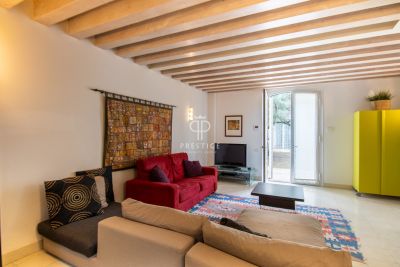
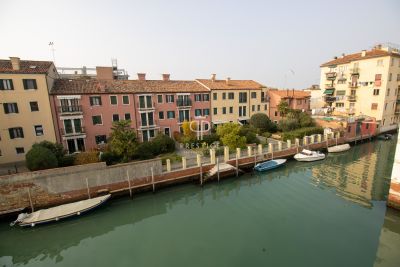
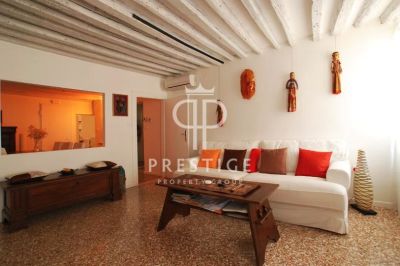

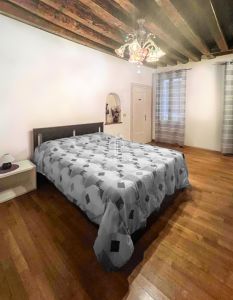
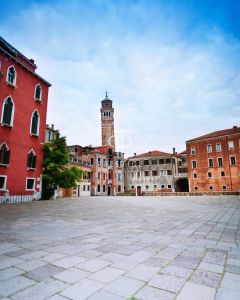

 Facebook
Facebook Twitter
Twitter Instagram
Instagram